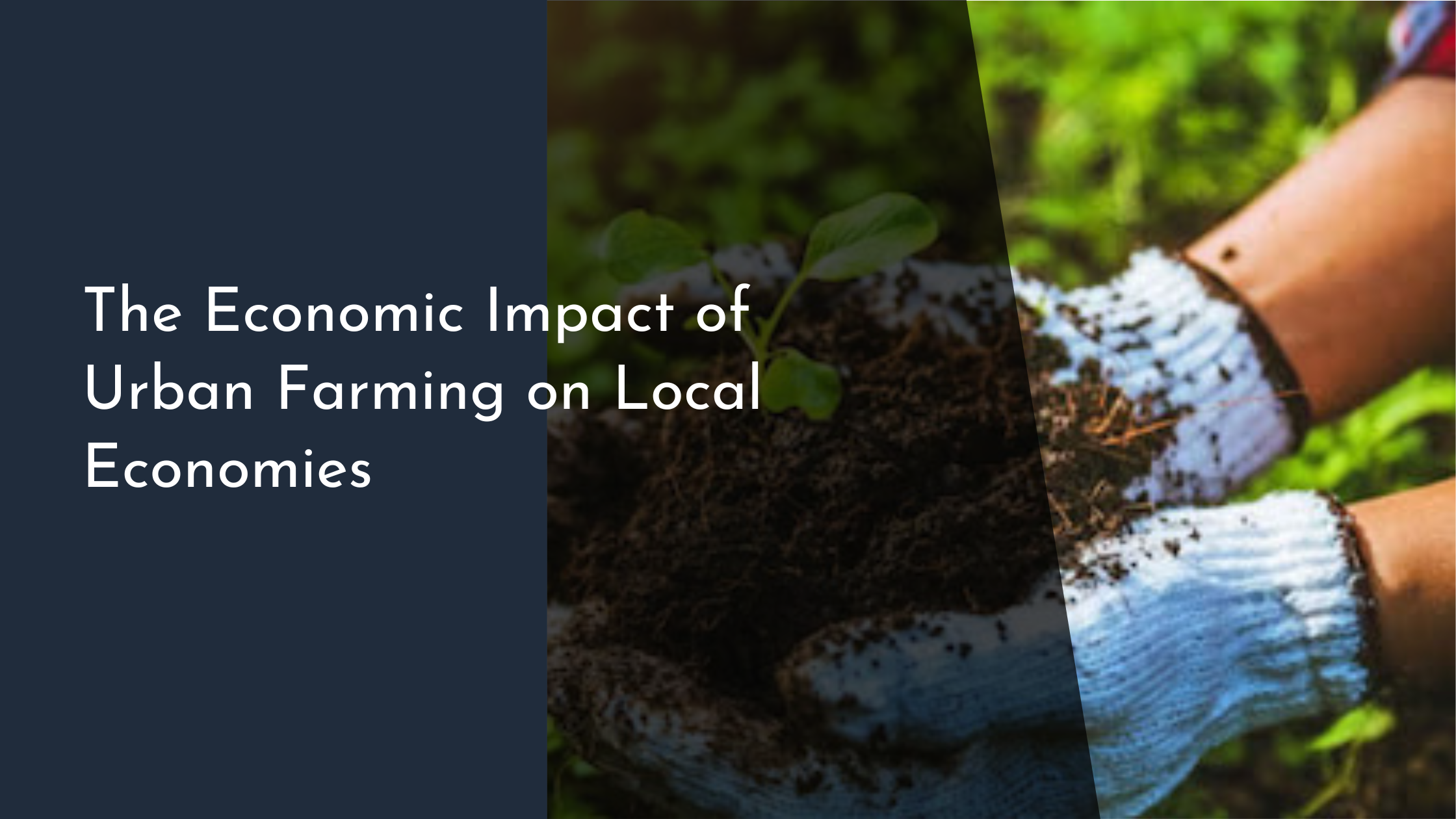The Economic Impact of Urban Farming on Local Economies
Urban farming is revolutionizing the way we think about agriculture and urban development. As cities continue to expand, the need for sustainable food production has become increasingly urgent. Urban farming brings agriculture to the heart of cities, creating green spaces that not only provide fresh produce but also foster community engagement and economic growth. This article explores the economic impact of urban farming on local economies, shedding light on how this innovative approach is transforming urban landscapes and communities.
Understanding Urban Farming: A Growing Trend
Urban farming is rapidly becoming a mainstream phenomenon, characterized by its innovative integration of agricultural practices within urban settings. This can range from rooftop gardens and community plots to vertical farming and hydroponic systems in disused warehouses. What sets urban farming apart is its ability to utilize underused urban spaces to produce food locally, reducing the need for long-distance transportation and thereby minimizing carbon footprints. This burgeoning trend is not just about growing vegetables; it’s about reshaping urban living and creating self-sustaining communities.
Moreover, the rise of urban farming can be attributed to increased awareness of sustainability issues, as well as a growing interest in locally sourced and organic produce. People are becoming more conscious of where their food comes from and the environmental impact of its production. Urban farming satisfies this demand by offering fresh, pesticide-free produce that can be harvested just a few blocks from where consumers live. This trend is not only satisfying consumer demand but also fostering a sense of connection to the food people eat, encouraging healthier eating habits and lifestyle changes.
Economic Benefits: Transforming Local Economies
Urban farming has a significant potential to stimulate local economies by creating new job opportunities and attracting investments. The establishment of urban farms requires skilled labor for tasks such as planting, maintenance, and harvesting. This demand for labor can lead to the creation of diverse job opportunities ranging from farm managers and workers to educators and market coordinators. Moreover, urban farms can serve as incubators for agritech startups, drawing investments in technology and innovation that further boost the local economy.
In addition to job creation, urban farming contributes to the local economy by supporting local food markets and reducing food transportation costs. When communities have access to fresh produce grown within their vicinity, there is less reliance on imported goods, leading to financial savings for both consumers and local businesses. Local restaurants, grocers, and markets can source produce directly from urban farms, fostering a local food network that keeps money circulating within the community. This symbiotic relationship not only benefits the economy but also enhances food security and resilience, reinforcing the importance of local food systems.
Community Involvement: Expanding Opportunities
Community involvement is a cornerstone of urban farming’s success, offering numerous opportunities for social engagement and education. Urban farms often operate as community hubs, providing a space for residents to come together, learn about sustainable practices, and collaborate on gardening projects. These farms host workshops, volunteer programs, and educational tours, empowering individuals with knowledge about food production and sustainability, while fostering a sense of ownership and pride in their community.
Additionally, urban farming initiatives often prioritize inclusivity by involving marginalized groups and providing them with training and employment opportunities. By addressing issues such as food deserts and unemployment, urban farms can play a crucial role in social equity. They offer a platform for community members to gain valuable skills and experience in agriculture, which can open doors to further opportunities in the field. This community-centric approach not only strengthens social ties but also builds a supportive environment where everyone can contribute to and benefit from urban agricultural projects.
Conclusion: Cultivating Prosperous Urban Futures
Urban farming holds the promise of cultivating prosperous futures for urban communities by redefining urban spaces and contributing to economic growth. As it continues to gain momentum, urban agriculture will likely play an increasingly vital role in shaping sustainable urban economies. By providing fresh produce, creating jobs, and fostering community engagement, urban farming is laying the groundwork for resilient and self-sufficient urban environments.
As cities continue to grapple with challenges such as climate change, food insecurity, and urbanization, urban farming presents an optimistic and achievable solution. It empowers individuals and communities to take charge of their food systems, promotes economic vitality, and enhances the quality of life for urban residents. The ongoing success of urban farming initiatives paints a hopeful picture of a future where cities are not just centers of consumption but also hubs of production, sustainability, and community.


